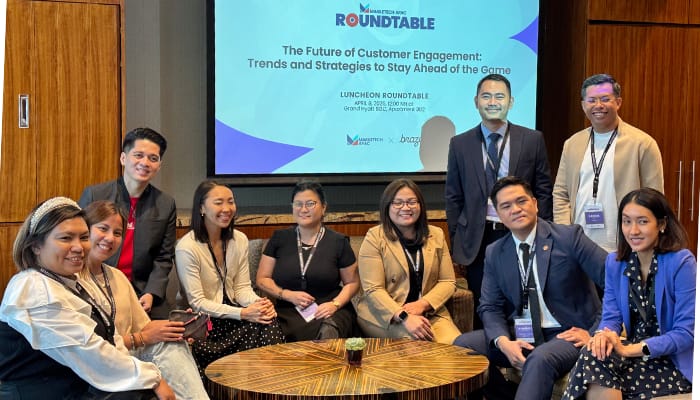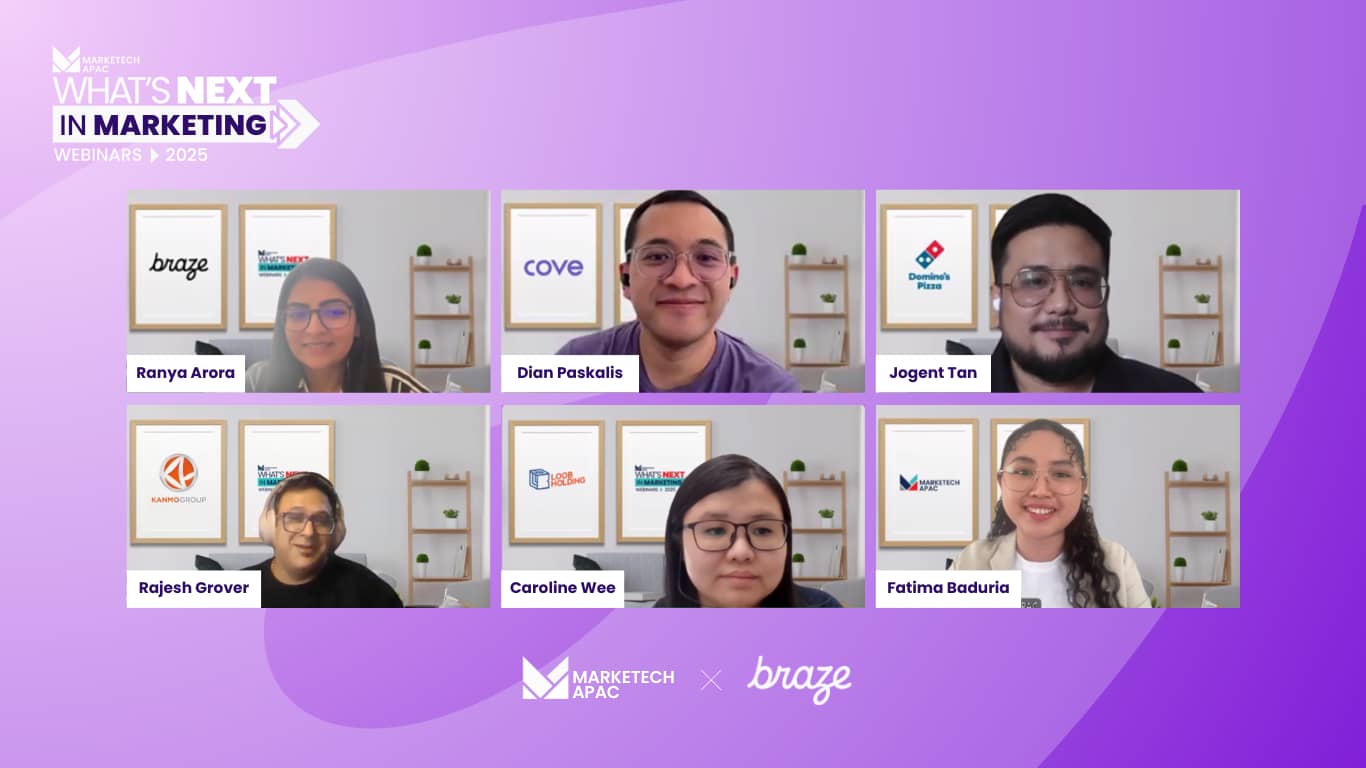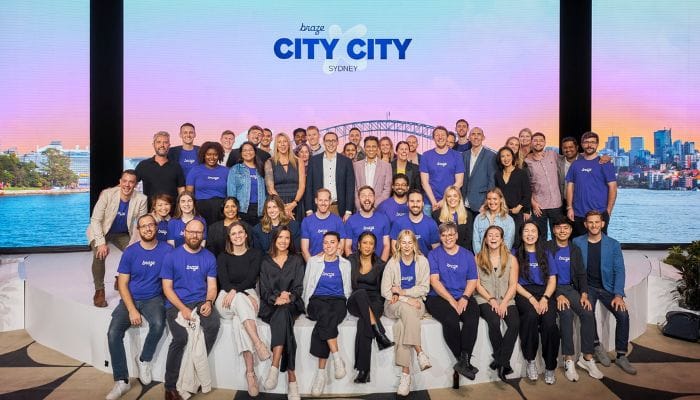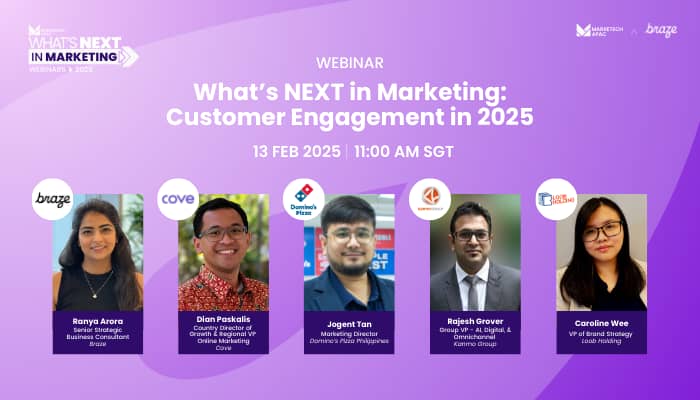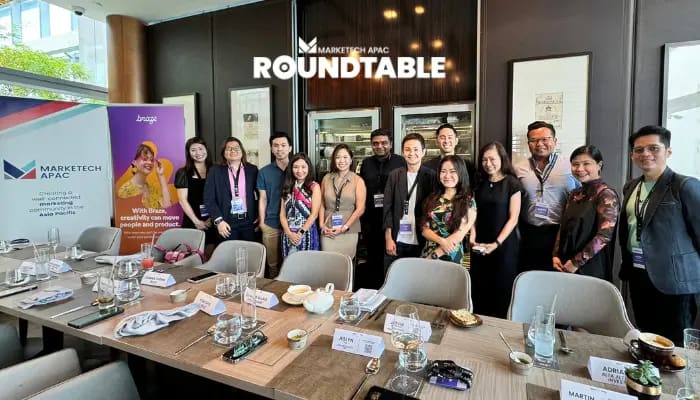Philippines—Creating a profound and lasting connection between a customer and a brand is anchored on innovation. More than adopting customer engagement strategies, brands need to adapt to consider emerging trends and constantly assess their suitability. To stay ahead of the game, brands undergo endless revolutions for better customer interaction, experience, and sentiment.
In partnership with Braze, to discuss innovative strategies in customer engagement, MARKETECH APAC invited marketing leaders in the Philippines for a roundtable event titled ‘The Future of Customer Engagement: Trends and Strategies to Stay Ahead of the Game.’ Drawing from their insights and experiences, each contributed to the conversation on how brands can forge more meaningful customer relationships while proactively embracing the fast-moving market.
Marketing leaders present at the event are:
- Genelyn Magoncia, assistant vice president, retail operations support at 2GO
- Louise Ingrid Salud, retail marketing manager at 2GO
- Marianne Ria S. Rayos, segment campaigns management head at Bank of the Philippine Islands (BPI)
- Rafael Bolinao, product development and management head at Bank of the Philippine Islands (BPI)
- Zainal Abidin, enterprise account executive at Braze
- Cherry Mae Poblete, assistant director for strategy and commercial marketing at Newport World Resorts
- Rommel Gutierrez, senior manager for loyalty and rewards at Newport World Resorts
- Lee-Anne Tobias, deputy head of marketing at Tonik, and
- Wanda Pascua, head of marketing at Tonik
Adopting technologies, making integration seamless
Part of innovating is learning to adopt technologies. However, businesses’ adoption of modern technologies must be strategic, with various considerations.
Marketing leaders agree on one thing: that technology has a crucial role in enhancing customer engagement.
“Modern technologies play a significant role in reshaping the landscape of omnichannel engagement by enabling seamless interactions across multiple touchpoints. Technologies like AI, machine learning, and big data analytics allow businesses to gather and analyse customer data, providing insights that facilitate personalised experiences and targeted marketing strategies,” Poblete said.
She added, “Moreover, advanced customer relationship management (CRM) systems integrate data from various channels, allowing businesses to create a unified customer profile that enhances personalisation and engagement. To adapt to these changes, businesses should invest in technology that supports multi-channel integration and prioritise data-driven decision-making.”
Reflecting this sentiment, Pascua said, “Modern technologies enable marketers to mine more data and implement work processes more efficiently.”
Pascua also emphasised the importance of aligning technology adoption with businesses’ needs to ensure it can help them achieve their goals.
“To stay competitive, businesses must be on the lookout for technologies they can implement to address their business needs. Don’t just fall in love with technology; most importantly, it should address a business need and impact your objectives,” she said.
Additionally, Pascua highlighted the importance of internal readiness to ensure seamless integration across touchpoints.
“Doing extensive due diligence with all the necessary pre-work to check on your tech stack pre- and post-integration is key. From a customer experience standpoint, we need to carefully iron out the customer experience map pre- and post-integration,” she said.
Incorporating AI into customer engagement strategies
It is relatively easier to claim the importance of AI-powered strategies than actually implementing them. Marketing leaders agree on the common pain point: employees’ reluctance and lack of knowledge about AI integration.
Proposing a solution, Tobias said, “To address this, it is crucial to have AI champions in every team within the company. These champions can advocate for the benefits of AI, provide support and training, and help measure the impact of AI on team goals by setting key performance indicators. By doing so, businesses can ensure a smoother integration of AI and maximise its potential in enhancing customer engagement.”
“At the end of the day, AI can only be maximised if it’s backed up by real intelligence and human intervention. As a practical solution, start with doing a workshop with the employees and training them to use the tools. Before project implementation, make sure everyone has time to be versed with the tool by giving them ample time to play and learn with it. Identify real use cases where the AI can be used and have everyone work on it,” Pascua said.
One way to effectively leverage AI in customer engagement strategies is to balance technology and maintain the human touch. This ensures that interactions between brands and customers remain authentic.
Pascua shared, “For Tonik specifically, we’ve implemented generative AI in our customer chat support. In doing so, we’ve also made the option to talk to an agent readily available. That way, when the bot is unable to handle some queries, the customer can easily start talking to an agent and get more personalised assistance. We know that customers can feel irate already when they go to chat support, so it’s best to reassure them that we genuinely care about their concern.”
Poblete also shares strategies for finding the balance between AI-powered automation and human touch.
“A hybrid model can be effective, where AI tools like chatbots provide initial support and escalate complex issues to human agents, ensuring customers receive prompt responses while still having access to personalised assistance when needed. Additionally, leveraging AI analytics to gather insights about customer preferences allows for more personalised and relevant conversations. While automation can streamline communication, marketing and engagement, content should retain a human voice, showcasing real stories and genuine interactions to enhance authenticity,” Poblete said.
“Being transparent with customers about when they are interacting with AI versus a human builds trust and helps them feel more comfortable engaging with the brand. By strategically integrating AI with a strong human element, businesses can create authentic customer engagement that fosters loyalty and satisfaction,” she added.
As the conversation on customer engagement unfolded, marketing leaders’ insights intersected at a crucial point: technology balanced with the enduring need for genuine human connections is indispensable for stronger customer relationships.
While brands traverse the adoption and integration of various technologies, their focus remains on their customers’ needs. Sifting through the tools available at their fingertips, brands must choose which best propels them towards their goals. Advancing to their vision of the industry’s future, brands constantly have to innovate, not just to make the work easier but to make the bonds better.

